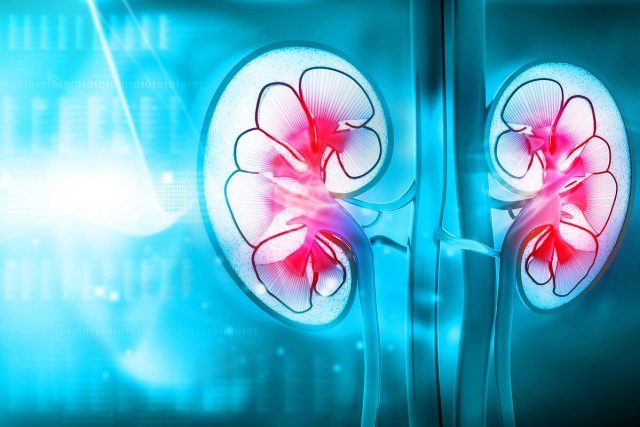Urine/creatinine was the variable with the highest importance and ID’d highest risk group when combined with urine epidermal growth factor/creatinine
By Elana Gotkine HealthDay Reporter
TUESDAY, June 24, 2025 (HealthDay News) — A biomarker panel can improve prediction of chronic kidney disease (CKD) progression in children, according to a study published in the June issue of the Journal of the American Society of Nephrology.
Jason H. Greenberg, M.D., from the Yale University School of Medicine in New Haven, Connecticut, and colleagues prospectively enrolled children aged 6 months to 16 years with an estimated glomerular filtration rate (eGFR) of 30 to 90 mL/min/1.73 m2. Biomarkers were measured in stored plasma and urine collected five months after enrollment, and a regression tree-based model was constructed using a panel of clinically relevant biomarkers to predict the time to the composite event. The primary outcome was CKD progression (defined as a composite of 50 percent eGFR decline or kidney failure).
A total of 599 children were included; 205 (34 percent) reached the primary outcome of CKD progression. A final set of four prognosis groups were suggested using a single regression tree-based model utilizing the most informative predictors with data-driven biomarker thresholds. The researchers found that urine albumin/creatinine was the variable with the highest importance in the final model and, together with urine epidermal growth factor/creatinine, identified the highest risk group of 24 children, of whom 100 percent developed CKD progression at a median of 1.3 years. The C-statistic increased from 0.76 to 0.85 when the regression tree-derived risk group classifications were added to prediction models including clinical risk factors.
“This research could help physicians with clinical monitoring and treatment strategies for individual patients, potentially slowing disease progression and improving long-term outcomes,” Greenberg said in a statement.
Copyright © 2025 HealthDay. All rights reserved.



















